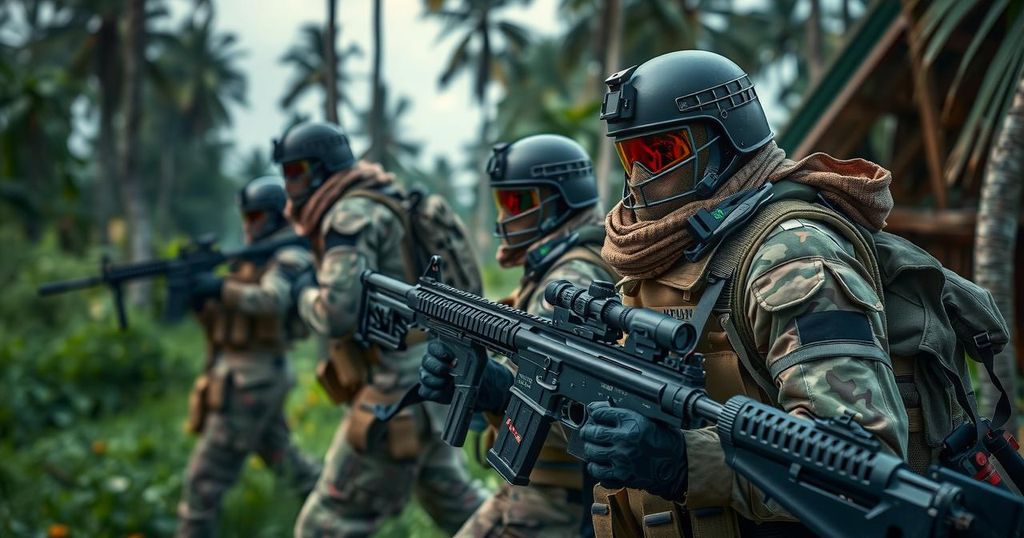Deployment of Russian Mercenaries in Equatorial Guinea: Recent Developments and Implications

Reports imply that Russia may have deployed mercenaries from the African Corps to Equatorial Guinea, particularly observed in the city of Bata. High-ranking Russian officials engaged with Equatorial Guinea’s leaders earlier this year, indicating strong ties. The involvement of Belarusian mercenaries further complicates the geopolitical landscape in the region, amidst a backdrop of Russian arms dealings throughout Africa.
Recent reports suggest that the Russian Federation may have deployed mercenaries from the African Corps to Equatorial Guinea, as indicated by observable movements in the city of Bata. Footage shared by DiarioRombe on social media shows individuals in a universal camouflage pattern, although this design is prevalent worldwide and cannot be definitively linked to Russian mercenaries alone. In June, high-level Russian officials, including Deputy Defense Minister Yunus-bek Yevkurov and Foreign Minister Sergei Lavrov, engaged with Equatorial Guinea’s leadership, hinting at ongoing diplomatic and military interest. Yevkurov is believed to oversee several Russian interests across Africa, notably in Libya and Niger. Meanwhile, it was reported that Belarus has similarly established a small mercenary presence through its GardService company in the region. Additionally, there are concerns surrounding the activities of Russian businessmen linked to arms deals across Africa, exemplified by Viktor Granov, who was recently connected to a downed cargo plane in Sudan. This involvement underscores the broader context of Russian engagement in African conflict zones, primarily facilitated through the training base in Krasnodar Krai.
The topic of Russian mercenaries in Africa encompasses a complex web of geopolitical interests as well as the involvement of private military contractors (PMCs). The African Corps, a group operating under the Russian flag, aims to expand Russia’s influence across the continent through armed support and military training. Key individuals, such as Deputy Defense Minister Yunus-bek Yevkurov, play significant roles in orchestrating Russian activities. Furthermore, Belarusian mercenaries indicate a growing trend of multi-national mercenary engagement in Africa as countries vie for control. The increase in mercenary activities correlates with various internal conflicts and the demand for military support, often leading to significant regional implications.
In summary, the indications of Russian mercenaries being deployed in Equatorial Guinea reflect a strategic effort to expand influence in Africa amid ongoing geopolitical competition. High-level diplomatic engagements suggest a pathway for further military collaboration and support, while the presence of both Russian and Belarusian mercenaries illustrates a complex operational environment that could heighten tensions in the region. The situation remains fluid, necessitating ongoing observation of international military activities across Africa.
Original Source: mil.in.ua








